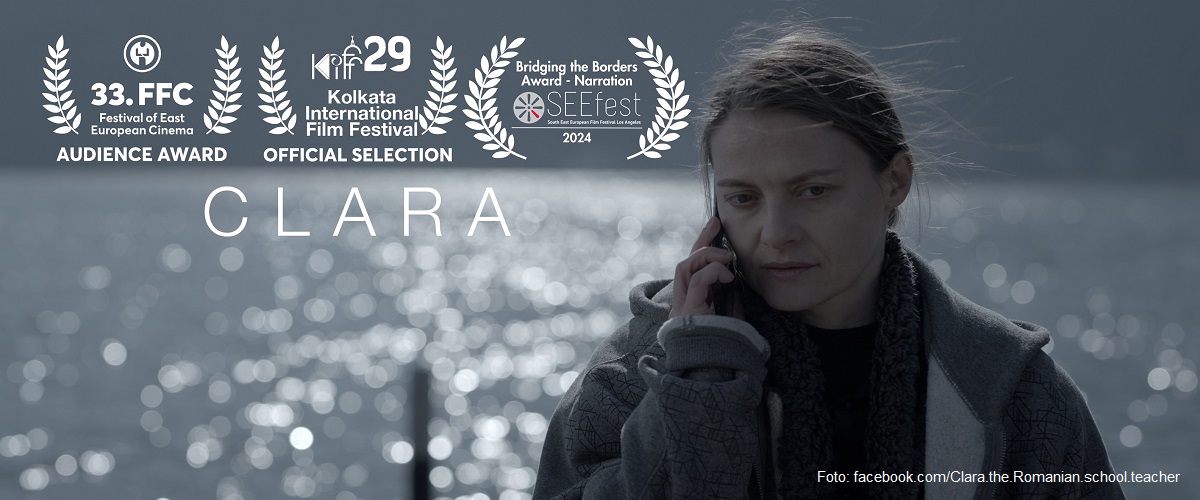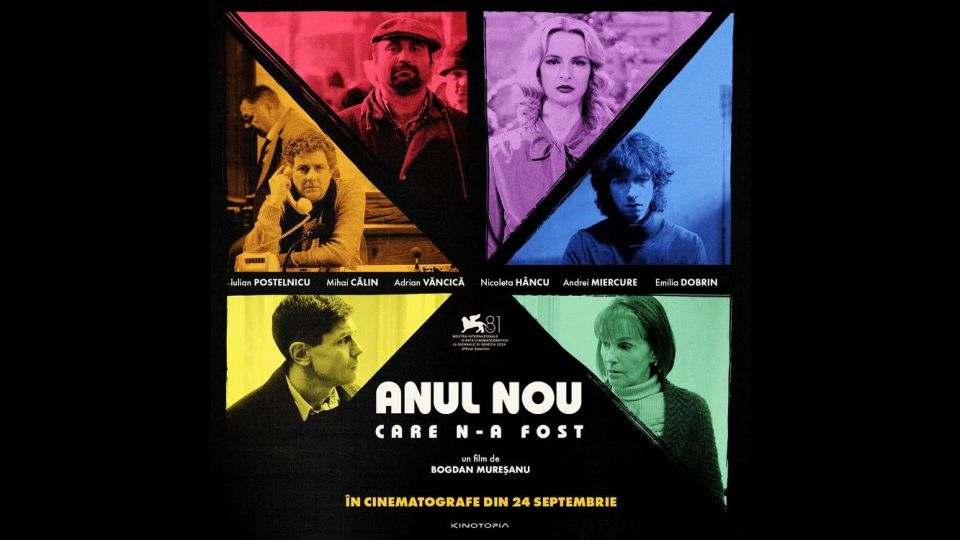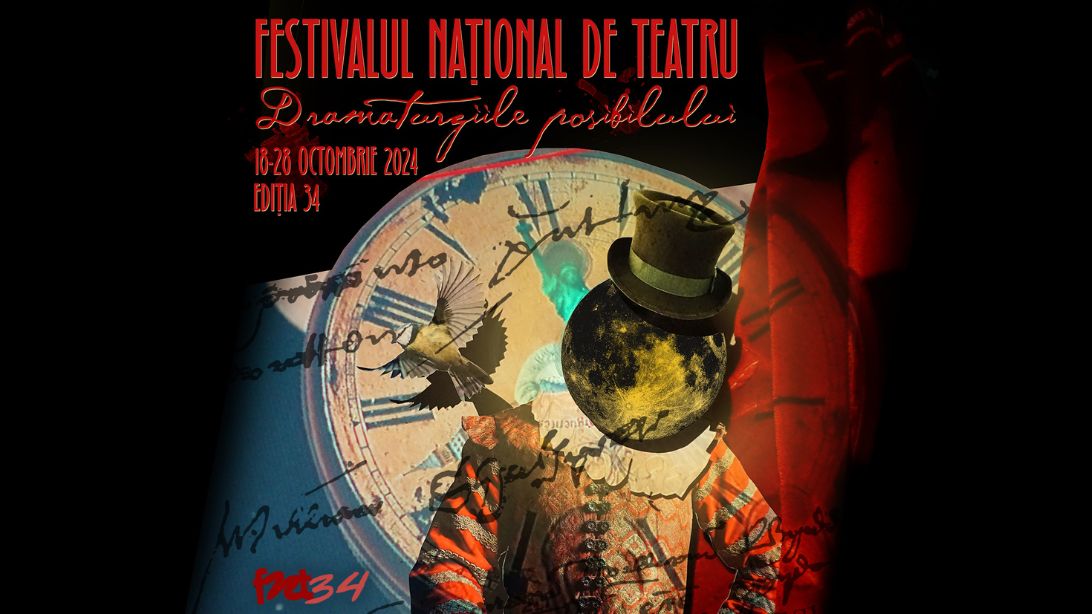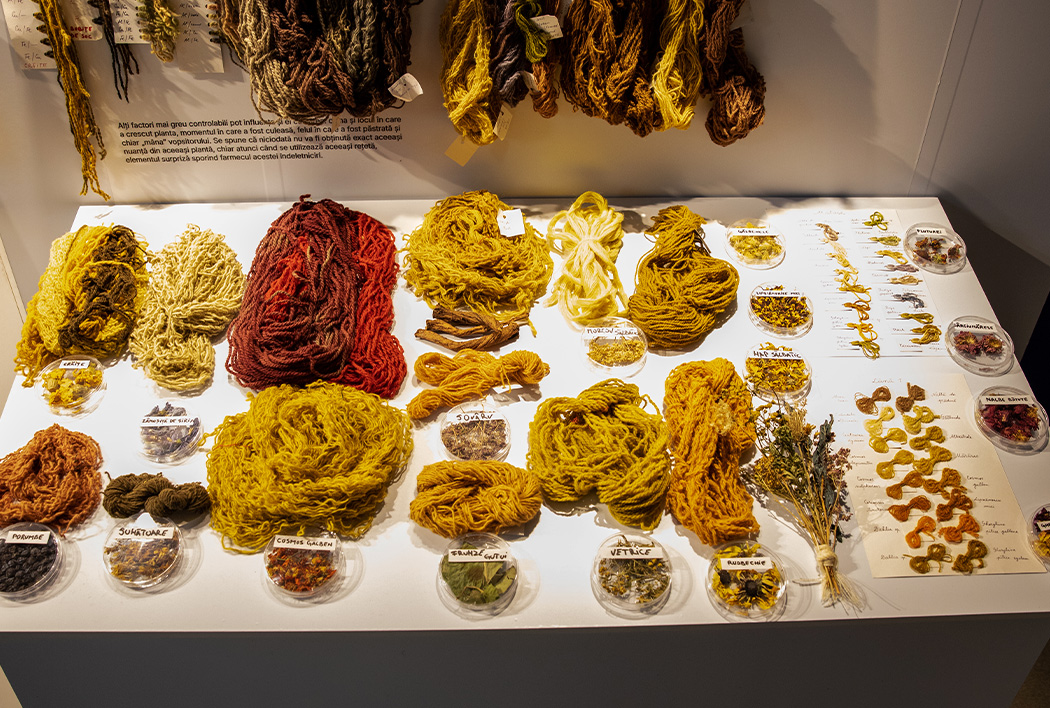Filmmaker Anca Miruna Lazarescu
Interview with Romanian-born film director Anca Miruna Lazarescu about her work and her ties with Romania.
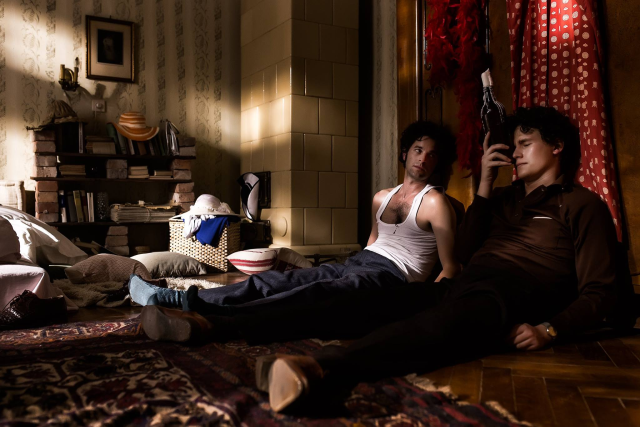
Christine Leșcu, 05.08.2017, 14:02
Filmmaker Anca Miruna Lazarescu was born in 1979. She
settled in Germany with her family in 1990. Yet her ties with Romania have
never been severed. Proof of that are the first short reels she made after she
had graduated from the Television and Film University in Munich, but also from
the University of California in Los Angeles. The titles of those films are Bucharest-Berlin, made in 2004, The Secret of Deva, a documentary she
made in 2007 and Silent River, a film
made in 2012. The latter production scooped a string of international awards,
among which the Gopo Award for best short-reel. The film tells the story of two
Romanian friends, who in 1986 intend to flee Romania swimming their escape out
of the country through the Danube.
While shooting Silent
River, Anca Miruna Lazarescu started filming her first feature film, which
was launched in 2016 and is entitled That
Trip We Took with Dad. The film again takes up on the topic of fleeing
communist Romania, which is actually a recurring theme throughout the
filmmaker’s childhood, under the form of a family story, told and retold on
Sunday evenings or on feast days. The story was actually experienced by Anca
Miruna Lazarescu’s father at the age of 18, later serving as screenplay for That Trip We Took with Dad. In the hot
summer of 1968 two Romanian youngsters leave the country with their father and
find themselves torn between returning to the country and staying on the other
side of the Iron Curtain. The choice is made against the backdrop of the
international events that year: the invasion of Czechoslovakia by the troops of
the Warsaw Pact and the students’ rallies that had spread all across Western
Europe back then. The complexity of that family legend was something the
filmmaker herself foresaw throughout the years as she was growing up. With
details on that, here is Anca Miruna Lazarescu herself:
When I was still in
Romania, and I was, like, 9 or 10, I didn’t understand very well what exactly
that story meant. I didn’t fully understand all the political or emotional
dimensions. It was only much later, during my directing studies with the Film
School in Munich, that I began to realise it had been a story with a strong
emotional impact. It is the story of my father who was 18 in 1968 and who, just
like in the film, had very little time to take a crucial decision, a decision
that would influence his life forever. He had no choice other than take the
decision under chaotic circumstances: either stay in the West, in a system he
did not know and which he had only dreamed of, or return to the country which
was nothing like the West back then.
Since the story was
highly emblematic for her family, Anca Miruna Lazarescu admits she personally
got involved way too much in the making of the film. For instance, a little bit
of herself could be found in each of the three main characters in the movie:
the father and his two sons. Although she was not interested in box office
success with her previous productions, the situation was different with That Trip We Took with Dad. Anca Miruna
Lazarescu once again:
As compared to the
short-reel Silent River, a production
I wanted as pure and ravishing as it could be, so that the film could succeed
in festivals, I wanted That Trip We Took with Dad to reach a larger audience.
I tried to guide the public so as to make sense of certain historical details.
I believe that’s what the biggest change was about: it was for me to try to
offer as few data as possible, so as not to bore my audiences and at the same
time provide some information for the younger audiences. I didn’t want to be
objective. For a filmmaker being objective will only distance himself or
herself from the topic or the characters. However, what I really wanted was to
create characters many people can identify with. I think that even a negative
character may not have that intention. A film becomes realistic the moment even
the worst characters seem to have human reasons for acting the way they do.
Immediately after its release, a
promotion tour followed, so that That
Trip We Took with Dad can reach audiences in as many Western and Eastern
European countries as possible, but also in Russia. The film captures the
different ways in which citizens from the Soviet concentration camp and
citizens from the West related to the events of the year 1968 – the former
fleeing communism, the latter militating for a communist revolution. It is
interesting to watch the various reactions of modern-day audiences. Speaking
about that, here is Anca Miruna Lazarescu once again:
The feedback I had
in Prague or Budapest was different from what I noticed in the West. In Munich,
questions went something like, ‘It’s all good, we all know what we’ve been
through in those times, we took to the streets to rally…But how truthful were
you in the way you presented what happened in Romania? And when the film was
screened in Prague, Budapest or in Romania, the feedback I got went something
like, ‘Thank you, for the first part of the film, we all know what it was like
in 1968. But how truthful are the scenes showing youngsters from the West
dreaming of a communist revolution? I was very happy as it seemed to me the
film can bring together and closer citizens who in fact lived in concentration
camps that had for so long been different from one another.
To Romanian cinemagoers, That Trip We Took with Dad
offered yet another pleasant surprise. The return to the big screen of a very
popular actor, Ovidiu Schumacher, who settled in Germany in the late 1980s and
who has since been absent from Romanian cinema and theatre.

